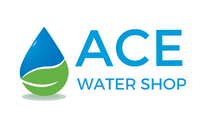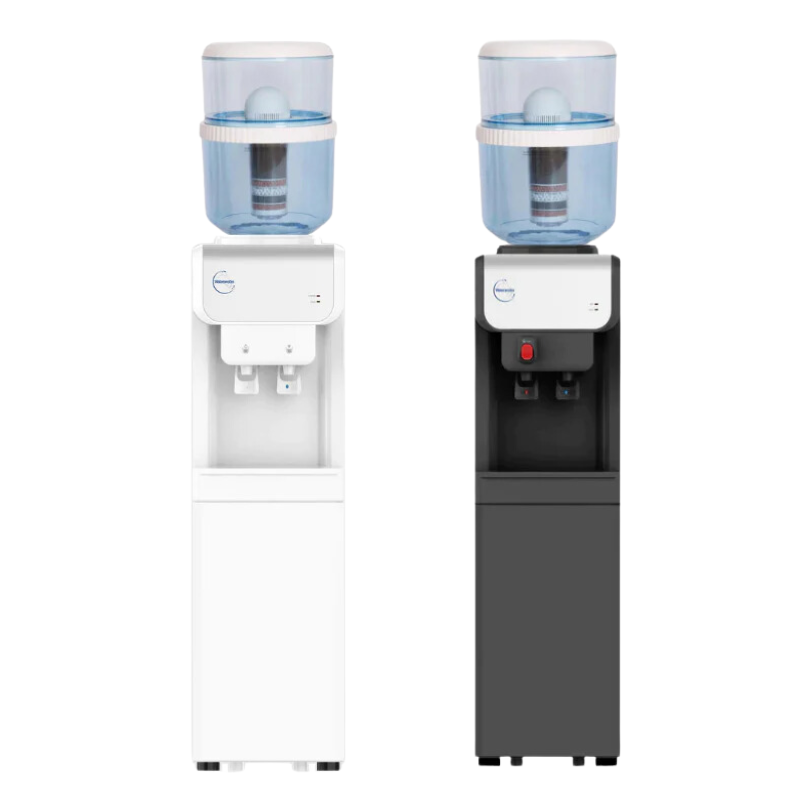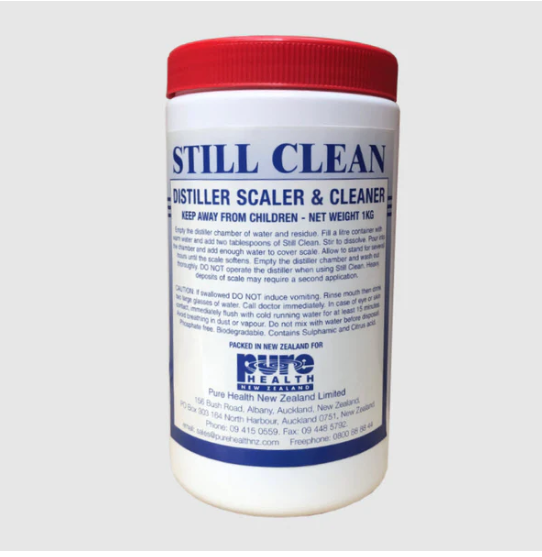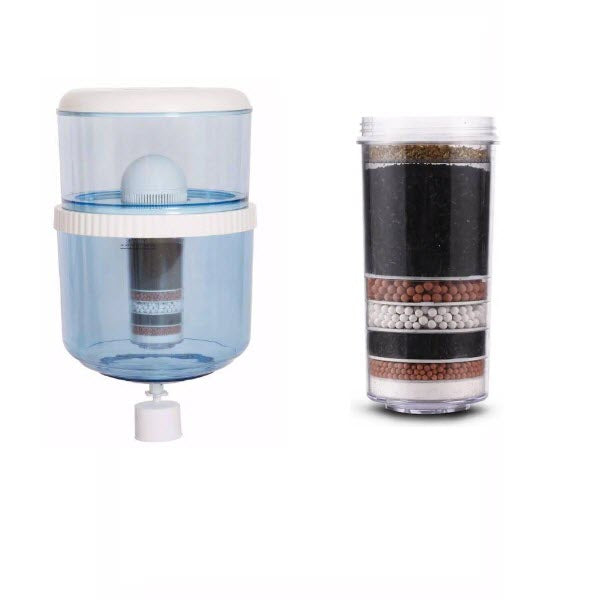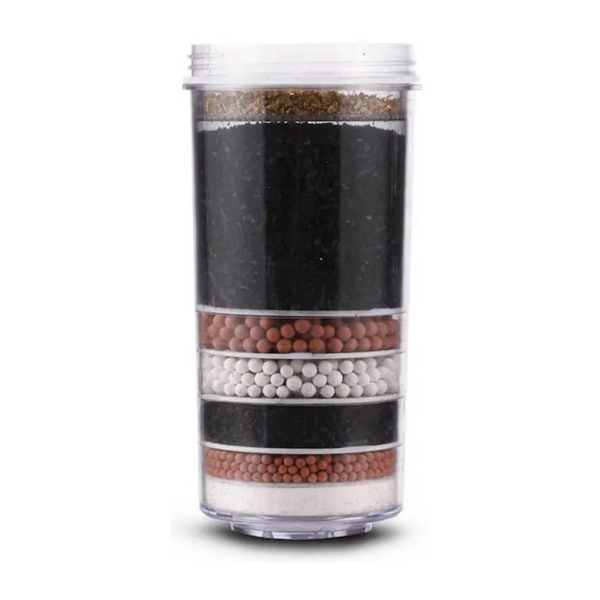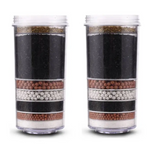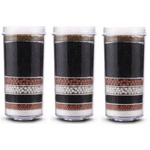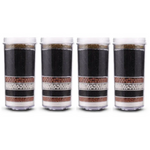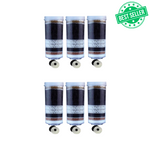You have no items in your shopping cart.
Have you ever noticed a white, chalky residue on your taps, showerheads, or the kitchen sink? These are hard water stains - the unsightly spots that love to call your home, their home. But worry not, in this post, we will delve into your ultimate guide to combating hard water stains.
First, let's get to grips with our nemesis - hard water. Understanding the enemy is the first step to victory, isn't it?
What is Hard Water?
Hard water is a common issue for many Australian households, primarily caused by an excessive amount of minerals, such as calcium and magnesium, in the water. These minerals are harmless to consume but can leave behind a stubborn residue when the water evaporates - the notorious hard water stains.
Implications of Hard Water
Aside from the unsightly appearance, these stains can have various adverse effects. They can reduce the efficiency of appliances, lead to blockages in your plumbing, and even affect your skin and hair. Given these impacts, it's important to keep hard water stains at bay.
Identifying Hard Water Stains
Hard water stains are usually white, chalky spots that can appear on your faucets, showerheads, bathtubs, toilets, and sinks. They can also manifest as a residue on dishes and glassware.
Now that we've got a handle on what hard water is and the problems it presents, it's time to get our hands dirty (or clean!) and tackle these stains.
Effective Ways to Remove Hard Water Stains
1. Commercial Hard Water Stain Removers
One of the most effective ways to combat hard water stains is by using commercial cleaners. They're formulated to break down and dissolve the mineral deposits, leaving your surfaces spotless. For instance, products like our AceWaterShop's Hard Water Stain Remover are specially designed for this task.
2. Vinegar Solution
If you prefer a more natural approach, a vinegar solution can be an effective DIY method. The acidity in the vinegar can dissolve the mineral build-up. Simply mix equal parts of white vinegar and water, apply it to the affected areas, let it sit for 15 minutes, then scrub and rinse.
3. Baking Soda Scrub
Another DIY method involves creating a scrub using baking soda and water. The abrasive nature of baking soda helps scrub away the hard water stains. Apply the paste to the stain, let it sit for 15 minutes, then scrub and rinse.
4. Prevention is Better Than Cure
Preventing hard water stains can save you time and effort in the long run. Regularly clean your appliances, fixtures, and surfaces. Install a water softener system to reduce the hardness of your water, thereby reducing the potential for stain formation.
We've gone through the why's and the how's of hard water stains and even offered some solutions. But remember, every situation is unique and sometimes requires a unique solution. Experiment with different methods, and you're sure to find the perfect remedy for your hard water predicament.
Why Do We Get Hard Water?
Hard water is not a result of any flaw in your plumbing or local water treatment facilities. Rather, it's a product of the environment. When water flows through deposits of limestone and chalk rich in calcium and magnesium, it absorbs these minerals. The higher the concentration of these minerals, the harder your water becomes.
Understanding Water Hardness Levels
The hardness of water is generally gauged using three common metrics: grains per gallon (gpg), milligrams per liter (mg/L), or parts per million (ppm). As a general guideline:
- Soft Water: 0-17.1 mg/L or 0-1 gpg
- Slightly Hard: 17.1-60 mg/L or 1-3.5 gpg
- Moderately Hard: 60-120 mg/L or 3.5-7 gpg
- Hard: 120-180 mg/L or 7-10.5 gpg
- Very Hard: 180 & above mg/L or 10.5 & above gpg
If you're unsure about the hardness of your water, you can get it tested. AceWaterShop offers water testing kits that can give you a clearer picture of your water's mineral content.
How Hard Water Affects Your Home and Appliances
Hard water stains are just the tip of the iceberg when it comes to the challenges that hard water presents.
-
Plumbing Issues: Over time, hard water can cause scale build-up in your pipes and fixtures, leading to reduced water flow and increased risk of blockages or corrosion.
-
Appliance Efficiency: Appliances that use water, like your dishwasher, washing machine, or water heater, may become less efficient due to mineral build-up. This can lead to higher energy bills and shorter appliance lifespan.
-
Laundry Challenges: Hard water can make your laundry feel stiff and dull. It can also make your whites look less bright and your colours fade faster.
-
Skin and Hair Health: Bathing in hard water can leave your skin feeling dry and your hair dull and lifeless. It can also exacerbate certain skin conditions like eczema.
In-Depth Look at Hard Water Stain Removal Techniques
Now that we've covered the basics, let's dig deeper into each of the stain removal techniques.
Commercial Hard Water Stain Removers
Commercial cleaners are designed to tackle hard water stains head-on. They contain specific ingredients designed to break down mineral deposits. When using these cleaners, make sure to follow the instructions on the label. Some products may need to sit for a certain amount of time to work effectively, while others may require dilution.
Always remember to rinse the area thoroughly after using a commercial cleaner to avoid any potential damage or discolouration. For tougher stains, repeat the process as necessary.
Vinegar Solution
Vinegar is a mild acid, which makes it great at dissolving mineral deposits. You can either spray your vinegar solution directly onto the stained surface or soak a cloth in the solution and place it over the stain. Let the vinegar work its magic for about 15-20 minutes, then scrub the area with a soft brush or cloth.
Don't forget to rinse the area thoroughly when you're done to remove any lingering vinegar smell. Also, while vinegar is generally safe to use on most surfaces, it can damage some natural stones like marble or limestone, so do a patch test first.
Baking Soda Scrub
Baking soda's abrasive nature makes it an effective scrub. After applying the baking soda paste to the stain, you can use a brush or cloth to scrub the area. For stubborn stains, you might need to repeat the process a few times.
Proactive Measures Against Hard Water Stains
While the methods above can help you clean up after hard water, they're all reactive measures. Taking proactive steps can save you time and effort in the long run.
Water Softeners
Water softeners remove calcium, magnesium, and other minerals from your water, reducing its hardness level. They use a process called ion exchange, replacing these minerals with sodium or potassium ions. Softened water reduces the likelihood of hard water stains and can extend the lifespan of your appliances.
Regular Cleaning
Regularly cleaning your appliances, fixtures, and surfaces can prevent hard water stains from forming or becoming too stubborn to remove. Make it a habit to wipe down wet surfaces after use.
Rinse Agents
Using rinse agents in your dishwasher can help prevent hard water stains on your dishes and glassware. They work by reducing the surface tension of water, allowing it to drain off the dishes more easily and leaving fewer minerals behind to form stains.
Conclusion
Battling hard water stains doesn't have to be a nightmare. With the right knowledge, tools, and techniques, you can keep your home looking its best. Remember, prevention is the best solution, and installing a water softener system can be a game-changer.
Here at AceWaterShop, we're your one-stop shop for all your water-related needs. Whether you're looking to test your water hardness, buy a reliable water softener, or find the most effective cleaning products, we've got you covered.
Arm yourself with knowledge, and let's beat the build-up together!
